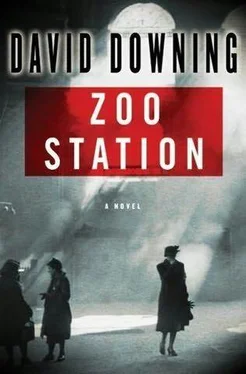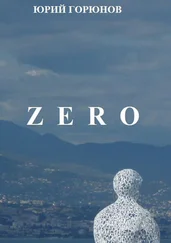David Downing - Zero Station
Здесь есть возможность читать онлайн «David Downing - Zero Station» весь текст электронной книги совершенно бесплатно (целиком полную версию без сокращений). В некоторых случаях можно слушать аудио, скачать через торрент в формате fb2 и присутствует краткое содержание. Жанр: Шпионский детектив, на английском языке. Описание произведения, (предисловие) а так же отзывы посетителей доступны на портале библиотеки ЛибКат.
- Название:Zero Station
- Автор:
- Жанр:
- Год:неизвестен
- ISBN:нет данных
- Рейтинг книги:5 / 5. Голосов: 1
-
Избранное:Добавить в избранное
- Отзывы:
-
Ваша оценка:
- 100
- 1
- 2
- 3
- 4
- 5
Zero Station: краткое содержание, описание и аннотация
Предлагаем к чтению аннотацию, описание, краткое содержание или предисловие (зависит от того, что написал сам автор книги «Zero Station»). Если вы не нашли необходимую информацию о книге — напишите в комментариях, мы постараемся отыскать её.
Zero Station — читать онлайн бесплатно полную книгу (весь текст) целиком
Ниже представлен текст книги, разбитый по страницам. Система сохранения места последней прочитанной страницы, позволяет с удобством читать онлайн бесплатно книгу «Zero Station», без необходимости каждый раз заново искать на чём Вы остановились. Поставьте закладку, и сможете в любой момент перейти на страницу, на которой закончили чтение.
Интервал:
Закладка:
Russell set out for Berlin soon after 9:00, papers and copies hidden in the false bottom, the suitcase itself wedged under the eye-catching model of the Preussen. There was no need, of course-no roadblock, no spot-checks, no officious small-town policemen eager to find fault with a car bearing a Berlin license plate. Soon after 1:00 he parked the Hanomag outside Zoo Station, pulled out the suitcase, and nervously carried it in to the left luggage.
“Nice day,” the clerk said, taking the case and handing over a numbered ticket.
“So far,” Russell agreed. He rang Effi from the telephone stand along the hall and told her things had gone to plan. She sounded as relieved as he felt. “I’m going home to collect some clean clothes and do a bit more shopping for Paul,” he told her. “I’ll see you about six.”
She told him they had tickets for a revue at one of the smaller theaters near Alexanderplatz, and he tried, in vain, to sound enthusiastic. “I’m just tired,” he explained. “I’ll be fine by then.”
He certainly felt safer with the suitcase squirreled away in Zoo Station’s cavernous left luggage. There was always the ticket of course, but if worse came to worse that was small enough to eat. Back at the car, he examined the model ship for the first time in daylight, and congratulated himself on his choice-it really was beautiful.
Frau Heidegger thought so too, and conjured up a bright red ribbon which she’d been saving for such an eventuality. There were messages from both his agents: Jake Brandon had sent a sarcastic wire from New York demanding copy, and Solly Bernstein had phoned to tell Russell that “his friends” had arrived in London. He was still smiling when he reached his third floor room.
After a much-needed bath and change of clothes, he piled several more changes into his usual suitcase and carried it out to the car. Lunch at Wertheim was followed by a leisurely stroll around the toy department, and the acquisition of two other gifts in which Paul had expressed an interest. A book shop further down Leipzigerstrasse supplied a third. He was probably spending too much, but he might never get another chance.
He managed to stay awake through the revue, but was unable to conceal his dismay when Effi suggested dancing. She took pity on him. “I know what’ll wake you up,” she said as they climbed the stairs to her flat, and she was right. Afterward, she showed him what she had bought for Paul-the gorgeous encyclopedia of animals which he had admired on their last visit to the zoo shop.
Next morning they joined several hundred other Berliners on the sidewalk of the Ku’damm, well-wrapped against the cold at their outside table, rustling newspapers, sipping coffee, and nibbling cake. This was how it used to be, Russell thought-ordinary Germans doing ordinary things, enjoying their simple civilized pleasures.
His newspaper, though, told a different story. While he’d been slinking round Kiel the Czechs had lost patience with the German-backed Slovaks, sacking their provincial government and arresting their prime minister. The Beobachter was apoplectic-what nation could countenance such a level of disturbance just beyond its borders? Some sort of German intervention seemed inevitable, but then it always had. If the separatists won then Czechoslovakia would disintegrate; if denied, their campaign would simply continue. Either set of circumstances would generate enough turmoil for Hitler’s purposes.
Looking up from his paper, the sidewalk cafй-dwellers no longer seemed content in their simple pleasures. They looked tense, weary, anxious. They looked as though a war was hanging over their heads.
After lunch with Effi he drove over to Grunewald, dropped off his presents, and gave his son a birthday hug. Twenty minutes later they were picking up Thomas in Lutzow and heading for the Plumpe. Thomas’s son Joachim had started his arbeitsdienst the previous week, and was repairing roads in the Moselle valley.
The weather was fine, but the team proved incapable of providing Paul with a birthday present. They lost 2-0, and were lucky not to lose by more. Paul’s despondency didn’t last long: By the time they were halfway home he was full of the party in prospect, and forgetful of Hertha’s dark betrayal.
Effi was already there when they arrived, talking happily to Thomas’s fourteen-year-old daughter Lotte. Over the next hour around a dozen of Paul’s friends-all of them male-were delivered by their parents, some in their Sunday best, some, for reasons best known to the parents, in their Jungvolk uniforms. The games they played seem surprisingly violent, but that, Russell supposed, was part of the same depressing mindset. At least they hadn’t replaced “pin the tail on the donkey” with “pin the nose on the Jew.” Yet. He would write a piece on children for the “Ordinary Germans,” series, he decided. When he got back from Prague.
Paul seemed happy and popular, which was definitely something to celebrate. The adults-Ilse and Matthias, Thomas and his wife Hanna, Russell and Effi-sat together in the huge kitchen, drinking Matthias’s excellent wine. They smiled and laughed and toasted each other, but the talk was of happier times in the past, of how things used to be. At one point, watching Ilse as she listened to somebody else, Russell had a mental picture of her in Moscow fifteen years earlier, eyes alive with hopes of a better world. Now all of them were backing into the future, frightened to look ahead. They had their own bubble, but for how long?
The evening ended, bringing tomorrow that much closer. After congratulating each other on how well their presents had been received, both he and Effi lapsed into silence for most of the journey home. They were turning into her street when she suddenly suggested accompanying him to Prague.
“No,” he said. “There’s no point in us both taking the risk.” He switched off the car. “And you’re a German-they’d try you for treason. They’d have more options with me.”
“Like what?”
“Oh, I don’t know. Swapping me for one of their spies, maybe.”
“Or just shooting you.”
“I doubt it. But I think having you there would make me more nervous. And more likely to give myself away.”
She searched his face, and seemed satisfied with what she found. “All right,” she said. “It’s no fun just waiting by the phone, you know.”
“I know.”
Upstairs, he noticed the script on her dressing table and had an idea. “Can you get another copy for yourself?” he asked.
“I don’t see why not. I could say I burned the first one in a fit of despair. But why?”
“I thought I’d take it with me in the suitcase. Camouflage. And one of your publicity shots would be good.”
She went and got one, a head and shoulders shot taken a couple of years earlier.
“Your face would distract anyone,” he said.
It was still dark when Russell woke and he lay there for a while, listening to Effi’s breathing and enjoying the warmth of her body. At 7:30 he forced himself out of bed, washed and dressed in the bathroom, and finally woke her to say goodbye as she had insisted he must. She enfolded him in a sleepy embrace, then swung her legs out of bed and arched her back in a huge stretch. As he descended the stairs she stood in her nightdress by the half-open door, blowing him a farewell kiss.
Berlin was already waking to another working week. The Avus Speedway was busy, but only in the other direction, and he reached Potsdam well before 9:00. After parking the Hanomag near the main post office in Wilhelmplatz, he lingered over breakfast in the coffee shop next door. The newspapers, as expected, were reveling in the misery of the Czechs.
At ten past 9:00 he presented himself at the poste restante desk, and signed for the familiar envelope. Walking back to the Hanomag, he felt like a man who’d just been handed a ticking bomb. Not to worry, he thought-he’d soon have two.
Читать дальшеИнтервал:
Закладка:
Похожие книги на «Zero Station»
Представляем Вашему вниманию похожие книги на «Zero Station» списком для выбора. Мы отобрали схожую по названию и смыслу литературу в надежде предоставить читателям больше вариантов отыскать новые, интересные, ещё непрочитанные произведения.
Обсуждение, отзывы о книге «Zero Station» и просто собственные мнения читателей. Оставьте ваши комментарии, напишите, что Вы думаете о произведении, его смысле или главных героях. Укажите что конкретно понравилось, а что нет, и почему Вы так считаете.












